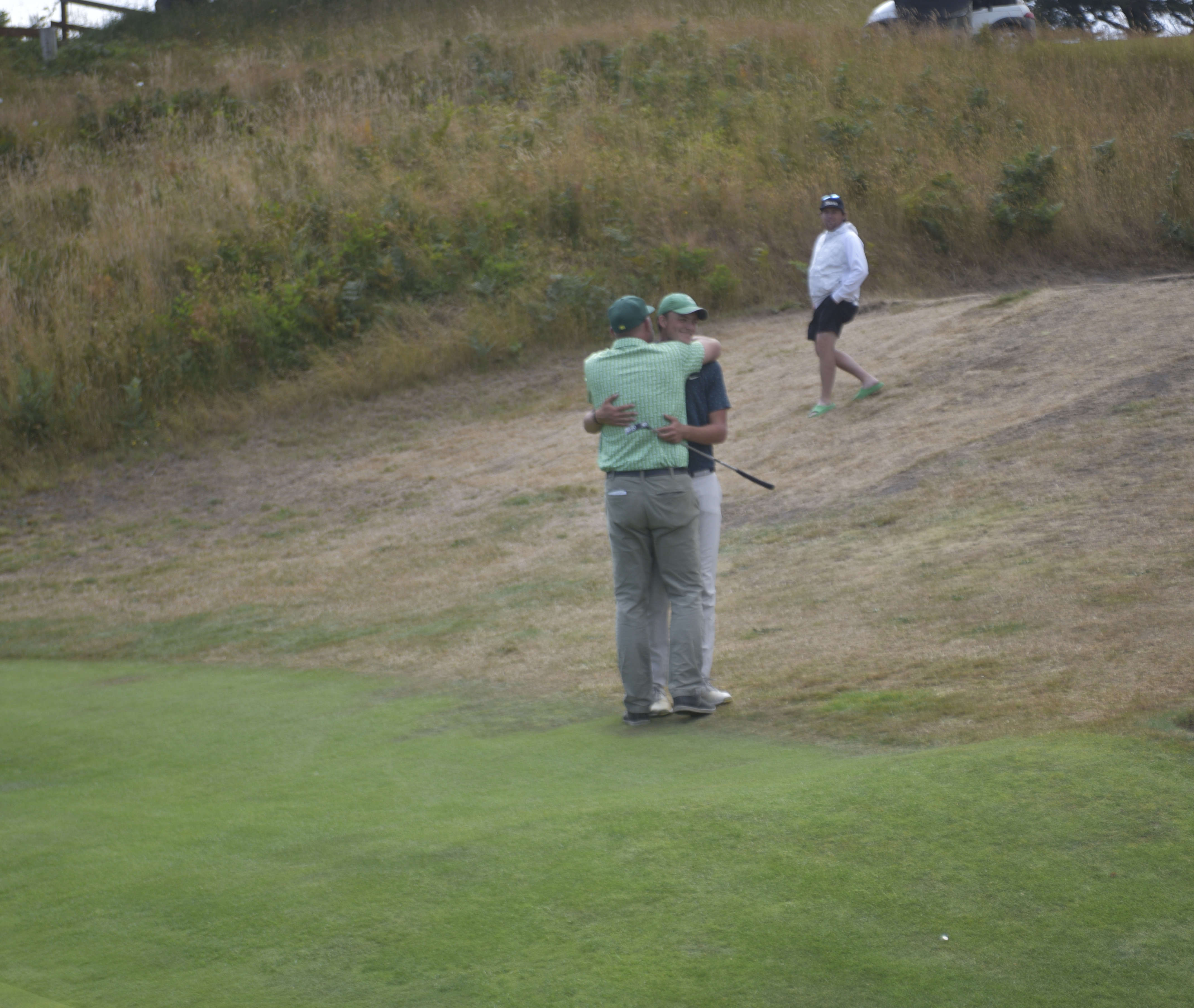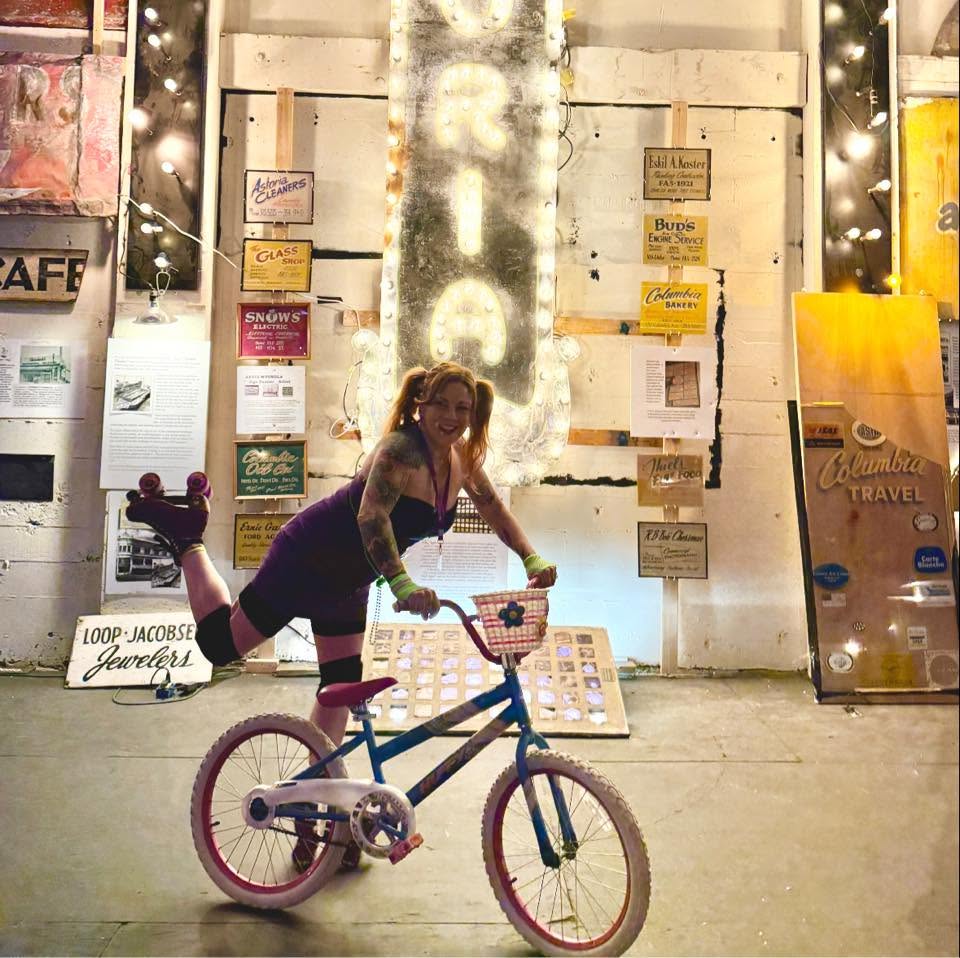Making the Dollar: Pendleton Outlet
Published 5:00 pm Wednesday, August 27, 2008
An interview with Janet Thompson, area manager, and Marilyn Sanbrailo, associate manager of Pendleton Outlet at the Seaside Outlet Mall, 1111 N. Roosevelt Drive, Suite 410, Seaside
Trending
Production of ceremonial Indian blankets first came off the ore-efficient mill building in Pendleton in 1909 and an Oregon tradition was born. A weaving mill was added in Washougal, Wash., in 1912 and the Pendleton virgin wool shirts appeared in 1924, followed five years later by a full line of sports wear. The Pendleton Outlet center in Seaside brings these legendary products to the North Coast, and at a discount. The store is open from 10 a.m. to 8 p.m. Monday through Saturday and from 10 a.m. to 7 p.m. Sunday and Monday. For more information, call (503) 717-1692 or (866) 471-9665.
Tell us about this outlet store.
Janet Thompson: “The first Pendleton retail store was right here in Seaside from 1910 to 1926. We will be celebrating 100 years of weaving, as Oregon celebrates its 150th year of statehood. The company has been family owned now for five generations. Pendleton has been chosen to design a special blanket for the celebration at the state fair next year. The blankets serve as a fundraising tool for the Oregon 150 year celebration and they commemorate the anniversary. They are available now at the state fair.”
Trending
Marilyn Sanbrailo: “Pendleton has 17 outlets and a total of 80 stores counting the retail stores. This is a true outlet store. Pendleton doesn’t make a cheaper product for the outlet, as many manufacturers do. We carry the same product as the retail store, but all of the clothing is half price, and the blankets sell for 30 percent less.”
Tell us about the blankets.
Sanbrailo: “The first blankets were made by Thomas Kay at a woolen mill in Brownsville, Ore. And then at a mill near Salem before the mill in Pendleton was started in 1909. The production of Indian blankets was begun after a study of colors and pattern preferences of local and Southwest Native Americans was completed. Trade expanded from the Nez Perce nation near Pendleton to the Navajo, Hopi and Suni nations.”
Thompson: “The blankets have been used as basic wearing apparel and also as a standard of value for trading. Many people buy them for decoration and gift giving and they are very important to Native Americans for ceremonial purposes.”
What sells best here?
Thompson: “Our best selling item is the Umatilla wool shirt. The women’s department is very popular. The first garment for women came out in 1949, called the ’49er jacket. They have changed very little since then, and women love them. We have them in stock now.”
How much volume does this outlet see?
Thompson: “Volume at this store is pretty high. We carry 15 to 20 thousand units in this 6,000 square foot building, and we are constantly getting more product. We sold from 50 to 60 units a couple of days ago. This is our busy season and we are doing very well. People are drawn to Pendleton products.”
Sanbrailo: “We do about $100,000 in blankets each year. We are shooting at doing $1 million in business this year. This is difficult because of the economy. We have to give more discounts so our margin is not real high.”
Tell us about the Pendleton legacy.
Thompson: “The legacy is its passion for quality. You can see it in the intricate patterns of Native American blankets inspired by ancient designs and legends, and you can feel it in the softness of the lightweight, luxurious 100 percent pure virgin wool clothing. We are the only company in the U.S. to use the Jacquard form of weaving Indian print. This weave is produced on a specialized loom and is characterized by complex woven-in designs. You can rely on a Pendleton for a lifetime of comfort and beauty. People come into the store wearing grandpa’s coat and it still looks great.”
Sanbrailo: “Pendleton also has a legacy of service to the community. In 2005 Pendleton created a new plaid called Weaving for Life, a 100 percent virgin wool muffler. Pendleton contributed $4 to the Susan G. Komen Breast Cancer Foundation for each muffler sold. This program was continued into 2006. Pendleton donated 500 blankets to victims of hurricane Katrina who were relocated to Portland from the Gulf. Right now, we carry the Grateful Nation blanket, woven to honor the sacrifices of our veterans. Donations from sales go to the Fisher House Foundation, which provides residences near major military and Veterans Administration medical centers for the families of ill or wounded service members and veterans.”









